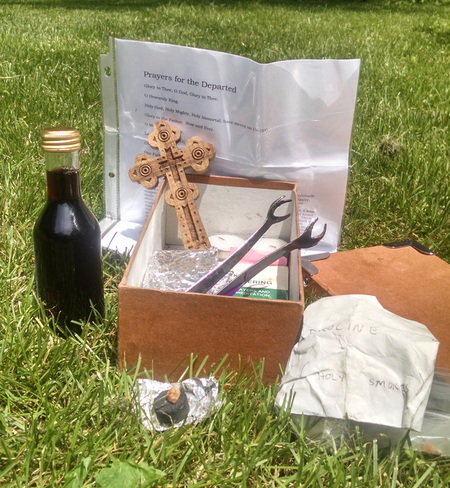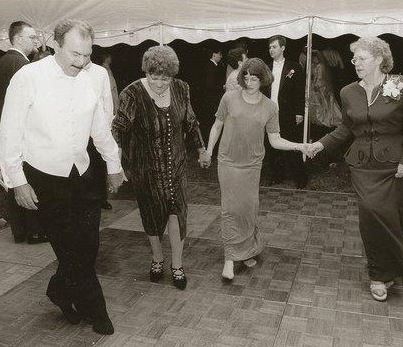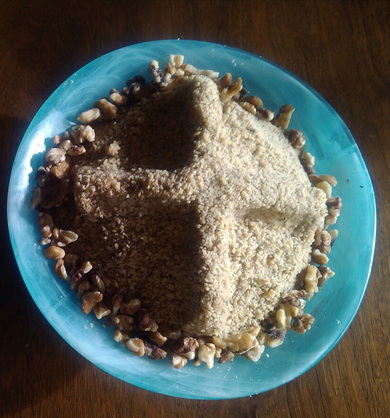This last weekend when we went to my father’s grave, we grabbed what we call our portable church and small bottle of red wine and headed out. I don’t always take the box or wine with me, but the portable church comes in handy when we gather as a group at the grave. My husband and I put together the portable church when his father died so that we would have everything we needed when we visited the grave. In this dollar store box we gathered: coal, incense, foil for the coal, candles and printed prayers. Over the years we added the small hand cross and a book of prayers for the sick and suffering, which we added when my mother-in-law was in the hospital after her fall. We added the coal tongs, something I inherited from my father after his death, which makes lighting coal for the incense so much easier. We keep the candles in the box even though the cemeteries we frequent have no place to leave candles. I suppose hope springs eternal.
Why do we bring wine to a grave? I know I would have wondered too. My father-in-law’s death taught me many things, but one of the most important things was what we do at the graves of our loved ones-Serbian Style. The day following his funeral, when all the fervor died down, the closest family members got into a car and drove to the cemetery. We brought wine with us. My husband prayed and blessed the grave with the wine. There we were in our grief, just those closest to Tata, blessing the grave. It remains such a beautiful and sorrowful memory for me. My husband later worried that no one would pour wine on his grave. He need not have worried. Our first-born was born just a month and a half following my father-in-law’s death so our children have visited graves all their lives. When they were very little I would take the boys to Deda’s (Grandfather’s) grave. They must have seen us use wine because my youngest realizing I had no wine with us, poured some juice from his sippy cup on his Deda’s grave. This last weekend, it was he who volunteered to bless his Granddad’s grave with wine.
Why would we bless graves with wine? It seems perhaps pagan. Quite possibly it began in pre-Christian times. I am almost sure of that. What I love so much about Orthodoxy is that we can incorporate different cultural and religious aspects into the prayer life of the church. We “baptize” them so to speak. The wine is simply a blessing of the grave done by the laity (those not ordained to the priesthood).
We gather at graves and offer prayers for our loved ones. Prayer for us is an act of love. When we pray for the dead, we affirm our belief that even though we die, we are alive in Christ. Since Orthodoxy has a strong belief in the holiness of the created, we incorporate different aspects of creation when we pray: incense from the tree, beeswax candles from the bees, wine from grapes etc. Not all orthodox take wine to graves, not all bring incense with them, but we all pray at the graves. I married into a Serbian family, so I have taken on Serbian traditions. I cannot speak to Russian, Greek or Arabic traditions. I would love to know how we differ on visiting graves. The next time you see people gathered at a grave pouring wine on a grave, you might have a better understanding as to what is going on.





 RSS Feed
RSS Feed